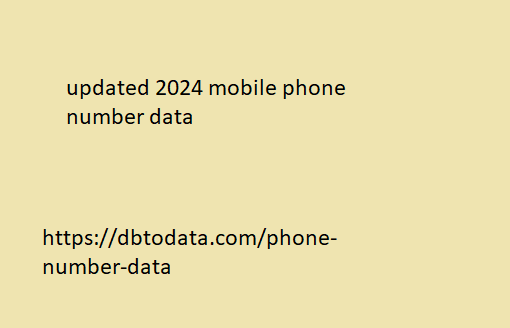Brazil, the largest country in South America, has witnessed a remarkable transformation in the 21st century, fueled by its vibrant economy and technological advancements. One of the key drivers of this transformation has been the rapid growth of Brazil’s numbers industry. From landline phones to mobile devices and broadband internet, numbers have become an integral part of Brazilian society, connecting people, businesses, and institutions on a global scale.
2. The Digital Revolution
The 21st century has been marked by a digital revolution, and Brazil has not been left behind. The country has experienced a significant increase in internet penetration and mobile phone usage. Therefore, transforming the way Brazilians communicate, access information, and conduct business.
Internet Penetration: Internet penetration in Brazil has surged in recent years, with millions of people gaining access to the online world. This growth has been driven by factors such as declining prices of internet services and improved infrastructure.
Mobile Phone Usage: Mobile phones have become an essential tool for Brazilians, with a high penetration rate and a diverse range of devices available. Smartphones. Therefore, in particular, have played a crucial role in connecting people to the internet and accessing a wide range of services.
3. The Evolution of Telecommunications
The evolution of telecommunications in Brazil has been a key factor in the country’s development. From traditional landline phones to advanced mobile networks and broadband internet, Brazil has witnessed a remarkable transformation in its telecommunications infrastructure.
Landline Phones: Landline phones were once the primary means of communication in Brazil. However, with the advent of mobile phones, landline usage has declined. Nevertheless, landline phones still play a role in certain areas, particularly in rural regions and businesses.
Mobile Networks:
Brazil has invested heavily in expanding its mobile network infrastructure, resulting in improved coverage and faster speeds. This has enabled Brazilians to stay connected wherever they go and access Turkey Phone Number Data a wide range of mobile services.
Broadband Internet: Broadband internet has become increasingly accessible in Brazil, with a focus on expanding coverage to rural areas. This has facilitated online activities such as e-commerce, education, and entertainment.
4. Numbers and the Economy
Numbers have played a crucial role in driving Brazil’s economic growth. The telecommunications sector has created jobs, stimulated innovation, and contributed to the development of other industries.
Job Creation: The growth of the telecommunications sector Buy Job Function Email List has led to the creation of numerous jobs, both directly and indirectly. From network engineers and technicians to customer service representatives and sales professionals, the industry has provided employment opportunities for millions of Brazilians.
Innovation and Entrepreneurship:
The availability of advanced telecommunications infrastructure has fostered innovation and entrepreneurship in Brazil. Startups and small businesses have leveraged technology to develop new products and services, contributing to the country’s economic dynamism.
Digital Transformation of Industries: The telecommunications sector has enabled the digital transformation of various industries in Brazil. From agriculture and manufacturing to retail and finance, businesses are increasingly adopting digital technologies to improve their operations and competitiveness.
5. Challenges and Opportunities
Despite its significant progress, Brazil’s numbers industry faces several challenges. These include the digital divide, cybersecurity threats, and regulatory complexities. Addressing these challenges will be crucial for ensuring the continued growth and development of Brazil’s numbers sector.
Bridging the Digital Divide: One of the major challenges facing Brazil is the digital divide, which refers to the disparity in access to information and communication technologies between different regions and socioeconomic groups. Efforts are underway to bridge this divide by expanding broadband coverage and providing affordable internet access to underserved communities.
Cybersecurity Threats:
As Brazil becomes more interconnected with the global digital landscape, it faces increasing cybersecurity threats. Protecting critical infrastructure and personal data from cyberattacks is a top priority for the government and businesses.
Regulatory Framework: A clear and efficient regulatory framework is essential for fostering investment and innovation in Brazil’s telecommunications sector. Simplifying regulatory procedures and promoting competition will be crucial for ensuring a level playing field for all market players.
Conclusion
Brazil’s numbers industry has undergone a remarkable transformation in the 21st century, playing a vital role in the country’s economic growth and social development. From landline phones to AOB Directory mobile devices and broadband internet, numbers have become an integral part of Brazilian society, connecting people, businesses, and institutions on a global scale. Addressing the challenges and seizing the opportunities presented by the digital age will be crucial for ensuring Brazil’s continued success in the realm of numbers.





